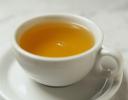 My drink of choice for a long time now has been green tea.
My drink of choice for a long time now has been green tea.
I stumbled upon a study from Molecular Nutrition & Food Research that reports– adding citrus juice to green tea promotes better antioxidant absorption.
Less than 20% of the catechins (antioxidants that may lower the risk of disease) in green tea survive in the nonacidic environment of the intestines. Scientists added citrus juices to the tea and found that with lemon juice present, 78% of catechins remaind intact during digestion and 71% with orange juice. That’s quite the boost!
Looks like I will be sucking on the lemons before the green tea shooter.
Why Should You Consider Tea as a Beverage of Choice?
1. Brain Plaque Reducer – Scientists have found that a natural component of green tea may eventually provide a way of curing Alzheimer’s disease (Rushworth et al., 2013).
Early-stage research has found that a component of green tea–epigallocatechin-3-gallate (EGCG)–can disrupt the build up of plaques in the brain, which is what causes the cells to die.
2. Improved Memory and Cognition – Tea contains theanine, a psychoactive amino acid almost unique to tea. along with EGCG, has also been implicated in improvements to memory.
Korean research by (Chung et al. (2011) has found that green tea extract and L-theanine can produce memory improvements in people suffering from mild cognitive impairments.
Mouse studies on EGCG suggest that it helps memory by increasing the production of new brain cells (Wang et al., 2012).
3. Ride the Alpha Wave – When theanine is given to people, their brains exhibit more α-waves, which are indicative of relaxation without drowsiness (Juneja et al., 1999)

[autoresponder1]
